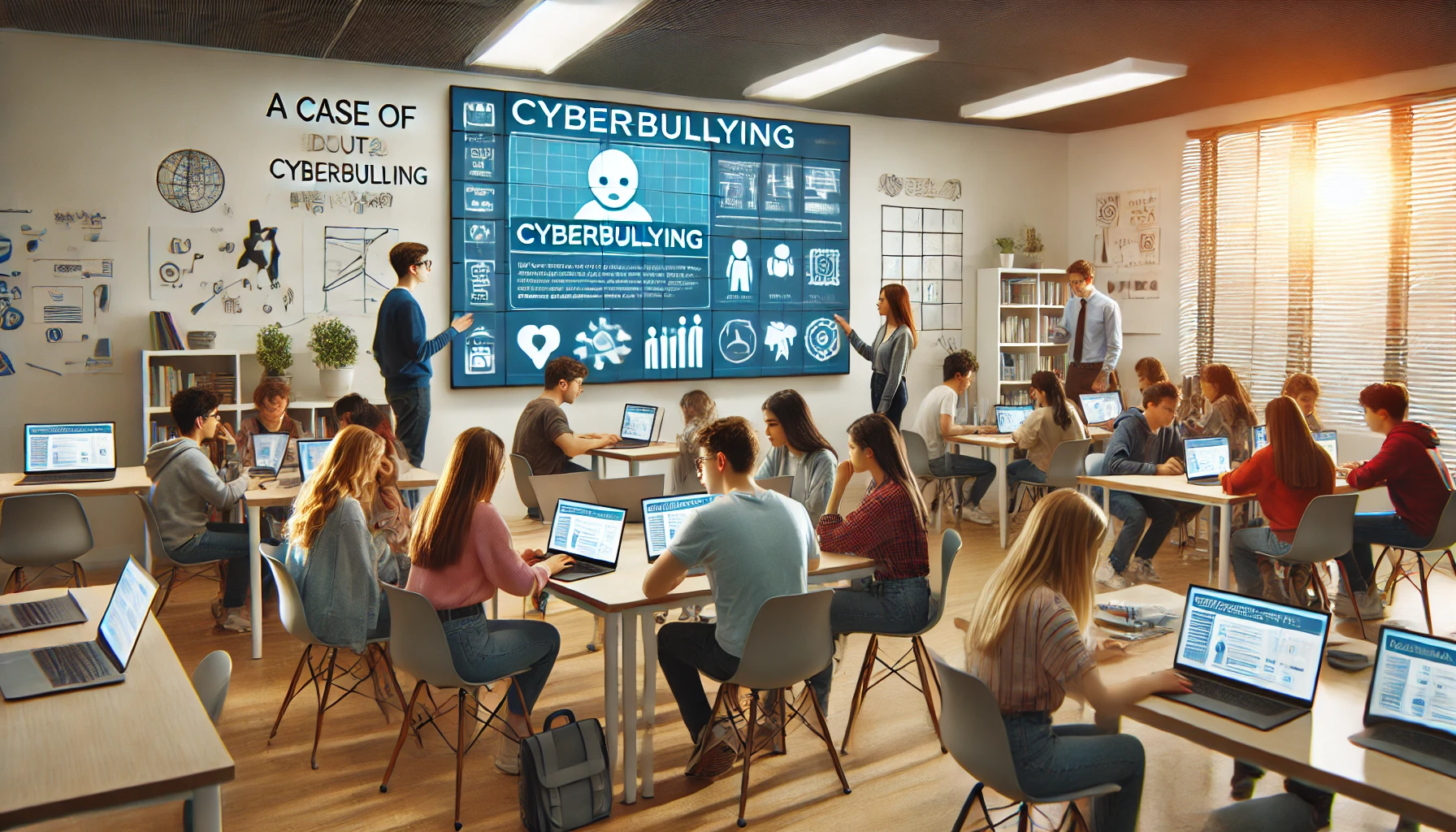Enhancing Teacher Preparedness for Cyberbullying: The Power of Collective Intelligence
A study by the University of Zaragoza explored how collective intelligence can enhance pre-service teachers' ability to address cyberbullying through collaborative learning. While the approach improved knowledge and problem-solving skills, it did not significantly boost the participants' confidence in handling cyberbullying cases.

A study led by researchers from the University of Zaragoza, Spain, explored the potential of collective intelligence as a tool to train pre-service teachers to better handle cyberbullying. The investigation involved 221 participants, all of whom were second-year students training to become teachers. These students were tasked with resolving a hypothetical case of cyberbullying involving adolescent sexting. The experiment aimed to assess whether collaboration and collective intelligence could improve their ability to identify, understand, and respond to incidents of cyberbullying, a growing issue that affects students both emotionally and academically. This type of bullying, often perpetrated through social media, can lead to serious psychological issues for both the victims and aggressors. In some cases, victims of cyberbullying experience anxiety, depression, and even suicidal thoughts. Meanwhile, aggressors are more prone to developing maladaptive behaviors such as social media addiction and substance abuse. Although schools are increasingly focusing on bullying prevention strategies, most teachers are not adequately trained to deal with the unique challenges posed by cyberbullying.
Harnessing Collective Intelligence to Solve Complex Problems
The research was structured around the concept of collective intelligence, which posits that groups working together on complex tasks can outperform individuals. This approach has gained traction in recent years, with studies showing that collective problem-solving can lead to superior outcomes in a variety of fields. For this study, the researchers designed an interactive platform known as Collective Learning, developed in collaboration with the Institute for Biocomputation and Physics of Complex Systems. The platform allowed participants to engage with one another through multiple phases of interaction, progressively refining their responses to the cyberbullying case they were presented with. Initially, participants were asked to individually respond to a series of questions designed to gauge their understanding of the case. In subsequent phases, they could view, copy, and modify the answers of their peers, with the goal of reaching the best possible solutions.
Learning Through Collaboration and Interaction
Throughout the experiment, the participants demonstrated a marked improvement in their ability to identify and address the case of cyberbullying. The researchers observed that the quality of responses improved significantly as the participants moved through the various phases of the experiment. By the final phase, many of the responses reflected a deep understanding of the problem and proposed effective strategies for intervention. This suggests that collective intelligence, when properly facilitated, can lead to substantial learning gains, particularly in fields where practical problem-solving is key.
Confidence Gap in Handling Cyberbullying
However, the study also highlighted an important challenge: while the participants’ knowledge and ability to intervene in cases of cyberbullying improved, their self-confidence in handling such situations did not increase as much. In the initial phases of the experiment, participants were asked to rate their own capacity to act as a teacher in response to the cyberbullying case. While there was a slight increase in their self-perception of competence as they progressed through the phases, this increase was not statistically significant. In fact, by the end of the experiment, some participants felt less capable of dealing with cyberbullying than they had at the beginning. This finding suggests that while collective intelligence can enhance practical knowledge and strategies, building confidence might require more sustained or varied forms of training.
Peer Interaction as a Key to Effective Learning
Another key finding was the impact of interaction on learning. The participants who engaged most actively with their peers tended to show the greatest improvement in their responses. This was particularly evident in the later phases of the experiment, where participants were allowed to copy and modify answers from their peers. This kind of interaction seemed to foster a deeper understanding of the issues involved, as participants could reflect on different perspectives and approaches to the problem. The researchers noted that the quality of responses improved significantly once participants began collaborating and sharing ideas. By the final phase, the majority of participants were able to propose effective strategies for dealing with the cyberbullying case, including preventive measures that could be implemented in schools to reduce the likelihood of similar incidents occurring in the future.
The Potential and Future of Collective Intelligence in Education
Despite the overall success of the experiment, the researchers acknowledged several limitations. For one, the study sample, while large for the region of Aragón, was not representative of the broader population of pre-service teachers in Spain. Additionally, technical issues with the Collective Learning platform led to the exclusion of some participants from the final analysis. Nonetheless, the results provide valuable insights into how collective intelligence can be harnessed in educational settings to improve teacher training, particularly in areas that require complex problem-solving and collaboration.
The findings suggest that collective intelligence could be a useful tool in teacher education, particularly for preparing teachers to handle modern challenges like cyberbullying. However, further research is needed to explore how this approach can also foster greater confidence among pre-service teachers. If implemented effectively, collective intelligence platforms like Collective Learning could play a key role in enhancing both the knowledge and practical skills of future educators, ensuring they are better equipped to create safe and supportive learning environments for their students.
- READ MORE ON:
- adolescent sexting
- cyberbullying
- social media
- teacher education
- FIRST PUBLISHED IN:
- Devdiscourse










